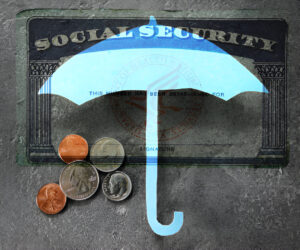How Bankruptcy Can Affect Your Social Security Benefits in Texas

Can Bankruptcy Touch My Social Security Benefits in Texas?
If you’re living in Texas and considering bankruptcy, you might be wondering: “Will I lose my Social Security benefits if I file?”
The short answer is probably not—but there’s more to it.
In Texas, Social Security benefits are generally protected (or “exempt”) from creditors during bankruptcy. However, there are some key conditions and exceptions you need to understand to keep your income safe.
Let’s break it all down clearly and practically.
How Does Bankruptcy Work with Social Security Income?
When you file for bankruptcy, the court looks at all your income, assets, and debts to determine what can be used to repay creditors. Here’s where Social Security benefits come in:
-
Under Section 207 of the Social Security Act, Social Security payments cannot be garnished or seized by creditors.
-
Texas bankruptcy exemptions further protect “public benefits,” including Social Security.
-
However, once those benefits are mixed with other money in your bank account, they may lose their protected status if not handled properly.
Pro tip: Keep your Social Security income in a separate, dedicated account to avoid issues with the bankruptcy trustee.
What’s the Best Way to Protect My Social Security Income During Bankruptcy?
Here are smart ways to ensure your Social Security income stays protected:
Keep Social Security funds separate
-
Use a dedicated bank account.
-
Avoid depositing non-Social Security money into the same account.
Document your deposits
-
Maintain clear records showing where the money came from.
Work with a bankruptcy attorney
-
Professionals like Kisch Consumer Law know how to structure your case to maximize protection.
-
To understand more about how the Social Security Administration defines and protects benefits, you can also refer to this official SSA resource on benefit protections.
Are Social Security Disability (SSDI) and SSI Also Exempt?
Yes. Both SSDI and SSI are federally protected benefits and fall under the same exemption laws in Texas bankruptcy cases.
But remember, even exempt income can be scrutinized if:
-
It’s co-mingled with other funds.
-
You transfer it to pay off debts right before filing.
How Can Chapter 7 and Chapter 13 Affect My Social Security?
Chapter 7 Bankruptcy
-
Your assets are liquidated to repay creditors.
-
Social Security income is not part of the bankruptcy estate and is protected.
-
However, non-exempt property could still be sold.
Chapter 13 Bankruptcy
-
Involves a repayment plan over 3–5 years.
-
Social Security income is not considered in the repayment calculation, but some trustees might try to include it unless your lawyer objects.
What If I’m Retired or On a Fixed Income?
If you rely heavily on Social Security and have minimal assets, bankruptcy might offer debt relief without risking your core income.
Why it matters:
-
Texas law protects your homestead, personal property, and most retirement accounts.
-
This makes Texas one of the most debtor-friendly states for older adults or those on fixed incomes.
Quick Tips: How to Handle Social Security and Bankruptcy in Texas
-
Open a dedicated Social Security account
-
Don’t mix Social Security with other funds
-
Consult an attorney early to avoid pre-bankruptcy mistakes
-
Avoid large purchases or transfers before filing
-
Track and label deposits clearly
Why Choose Kisch Consumer Law for Bankruptcy in Texas?
Looking for a firm that actually understands Texas-specific bankruptcy exemptions and how to protect your income?
Here’s why Kisch Consumer Law stands out:
-
Deep experience with Texas bankruptcy laws
-
Strategic planning to protect exempt benefits
-
Friendly, human-first service
-
Proven record of helping Texans keep what matters
Kisch Consumer Law can help protect your income during bankruptcy
What Happens If I Already Mixed My Funds?
Worried you’ve already made a mistake? Don’t panic.
A good lawyer may still be able to:
-
Trace and prove the exempt origin of funds
-
File motions to protect the money
-
Educate the trustee on your behalf
This is where having an expert like Kisch Consumer Law can make a huge difference.
Frequently Asked Questions (FAQs)
Can debt collectors touch my Social Security in Texas?
No, unless it’s for specific federal debts like child support or IRS taxes. Private creditors cannot garnish Social Security.
What if I’m receiving both wages and Social Security?
Only the Social Security portion of your income is protected. Wages may still be subject to bankruptcy claims.
Do I have to report Social Security income when filing?
Yes, you’ll disclose all income sources, but Social Security should not be used to repay creditors.
Will filing for bankruptcy stop wage garnishment in Texas?
Yes, automatic stay goes into effect once you file. It stops wage garnishment, lawsuits, and creditor harassment.
Let’s Wrap This Up With Some Real Talk
So, can bankruptcy eat up your Social Security benefits in Texas? Not if you play it smart, keep things separate, and talk to the pros.
Whether you’re dodging debt like a financial ninja or just trying to stay afloat in a sea of bills, knowing your benefits are safe can be a huge relief.
Still feeling like this is all alphabet soup? Don’t worry—we speak fluent “legal-ese to human.”
Visit Kisch Consumer Law to create a data-driven, debt-defense strategy that actually works for you.
Protecting your income shouldn’t feel like solving a Rubik’s cube blindfolded. Let’s get you sorted—one smart move at a time.
